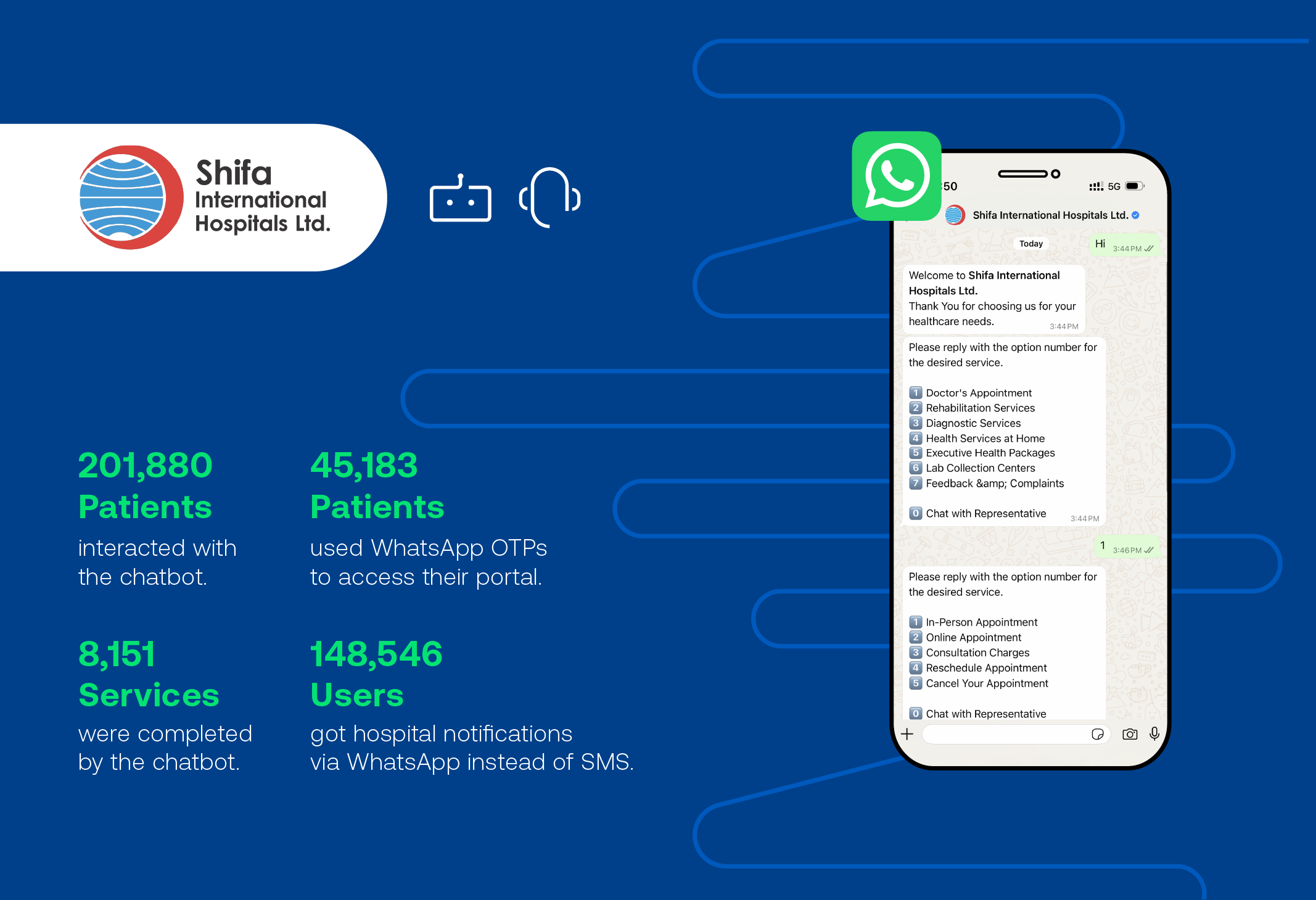How conversational channels are redefining marketing success
How conversational channels are redefining marketing success

Conversational marketing can be a powerful tool for businesses, particularly those in the Middle East market, and by adopting best practices, such as personalization, privacy, and security, businesses can leverage these channels to attract and engage customers while avoiding the risks associated with overuse.
What is Conversational Marketing?
Conversational marketing is a rapidly growing area of marketing that has the potential to transform the way businesses communicate with their customers. It utilizes popular messaging channels like WhatsApp, SMS, chatbots, and web chat to hold 2-way conversations with potential and existing customers. Using these channels in combination with customer data already held by the business can help to make interactions more personalized and relevant to the customer. Conversational marketing can help get to the root of customer requirements and wishes much sooner than relying on more traditional methods of business communication, and can even allow for carrying out transactions and after-sales service without leaving the chat environment.
Conversational marketing channels can be more personal, interactive, and timely than traditional channels. They empower businesses to provide a more personalized and convenient experience for customers, which can improve customer satisfaction and loyalty.
How Conversational Marketing Works?

To get the most from a conversational marketing strategy, businesses need to use all the tools at their disposal in a coordinated way, making sure that information is shared and stored in a way that can be accessed quickly across various channels by the systems and agents that need it. Some of the tactics involved can include:
- Using the wide range of functionality available on messaging apps to reach and talk to prospects, eg click to chat, web chat, video calls, rich data, catalogs, etc
- Harnessing tools like the WhatsApp API to connect messaging channels to a CMS. Plugging into customer data and purchase history to make messaging more personal and relevant.
- Using multichannel/omnichannel communication to talk to customers on whatever platform they are most comfortable with.
- Staying in contact with customers throughout the purchase and delivery process to make sure everything runs smoothly and to iron out any issues.
- Reaching out during the after-sales period to get feedback, communicate offers and promotions, and encourage repeat purchases and customer loyalty.
- Learning from collected data to improve products and services by analyzing trends and patterns in customer behavior.
Best Practices for Conversational Marketing:
Personalization
Personalization is key to successful conversational marketing. Customers like messages and interactions to be tailored to their specific needs and preferences. Businesses need to use customer data to personalize their messages and provide relevant offers and recommendations.
Privacy and Security
Privacy and security are crucial for building trust with customers. Businesses need to be transparent about what they are collecting and why, and they need to ensure that customer data is protected from unauthorized access or misuse. Using robust verification and authentication processes to establish identity before sharing information or making transactions is key to maintaining trust on both sides.
Avoid Over-Communicating
Businesses need to be mindful of not over-communicating with customers, as this can be perceived as intrusive or annoying. They need to find the right balance between providing relevant information and being respectful of customers' time and attention.
Use Data to Refine and Improve
Data analytics can help businesses refine and improve their conversational marketing strategies. By analyzing customer behavior and preferences, businesses can gain insights into what works and what doesn't, and they can make adjustments to improve the overall customer experience.
Deliver on promises
Customers expect businesses to deliver on their promises, and this is especially true in conversational marketing. Businesses need to ensure that their messages are accurate and timely, and they need to follow through on any offers or commitments they make to customers. Conversational marketing won’t help if your products and services aren’t up to scratch.
The Future of Conversational Marketing

Even as companies begin to adopt conversation marketing as a strategy, the technology around it is continuing to develop and evolve. So what are likely to be the next steps?:
- More Human-Like Chatbots
Chatbots are becoming more sophisticated and human-like, and they can offer higher levels of personalization and empathy. Advances in natural language processing (NLP) and machine learning are making it possible for chatbots to understand and respond to complex customer queries and concerns. - Greater Personalization
Personalization will continue to be a key focus of conversational marketing. Businesses will use customer data to create more personalized experiences, and they will use AI and machine learning to automate and optimize the personalization process. - Smoother Transitions
As chatbots become more sophisticated, the transitions between human and bot interactions will become more seamless. This will enable businesses to provide customers with a more natural and intuitive experience while reducing the risk of frustration or confusion. For example, if a customer is speaking with a chatbot and requests to speak with a human representative, the chatbot can seamlessly transfer the conversation to a human agent without disrupting the flow of the conversation. -
Higher security
With the growing concern around data privacy and security, businesses will need to ensure that their conversational marketing channels are secure and protect their customers' information. This will become even more critical as conversational marketing channels evolve to handle more sensitive information, such as payment transactions.
The future of conversational marketing looks set to be bright, and businesses that invest in these strategies and technologies effectively stand to gain a significant advantage and can provide a better customer experience while achieving their business goals.
However, we also need to be aware of the risks associated with the use of conversational marketing techniques. Over-communication and intrusion can lead to a negative customer experience, while over-reliance on chatbots can create frustration and dissatisfaction if customers don't feel they're receiving adequate human support. Businesses also need to ensure that their conversational marketing channels are secure and protect customer information in a landscape where cyber-attacks are ever-more prevalent and sophisticated.
Conversational marketing can be a powerful tool for businesses, particularly those in the Middle East market, and by adopting best practices, such as personalization, privacy, and security, businesses can leverage these channels to attract and engage customers while avoiding the risks associated with overuse.
As technology continues to evolve, conversational marketing will become even more sophisticated and human-like, providing businesses with new opportunities to connect with customers and drive revenue growth.
To speak to a Unifonic expert about how to effectively use conversational marketing in your business, reach out to us today.
Related articles

09 July 2025
Enhancing Patient Experience at Shifa International Hospital With Unifonic's Conversational Solution
Read more


%20(1).jpg)
